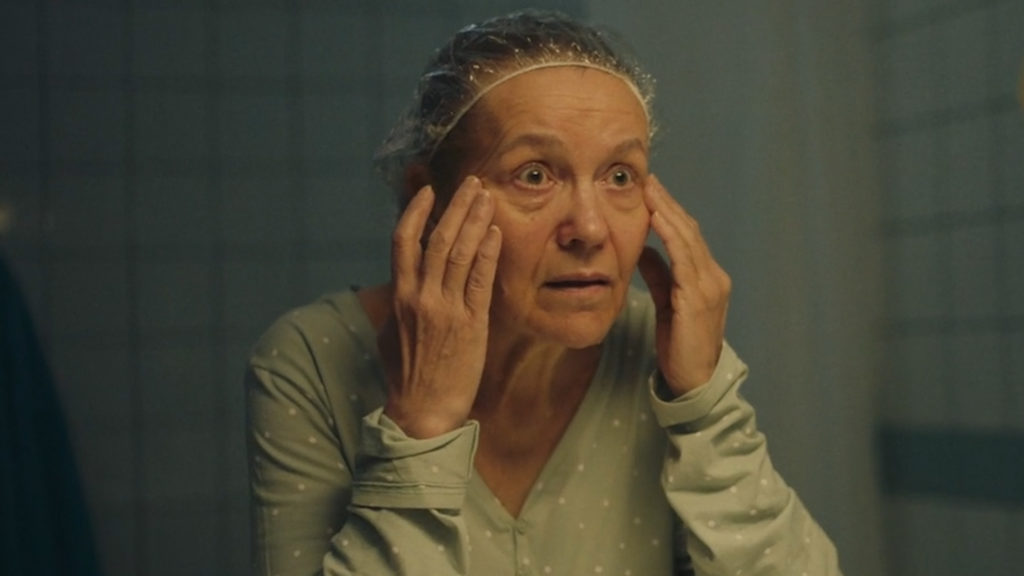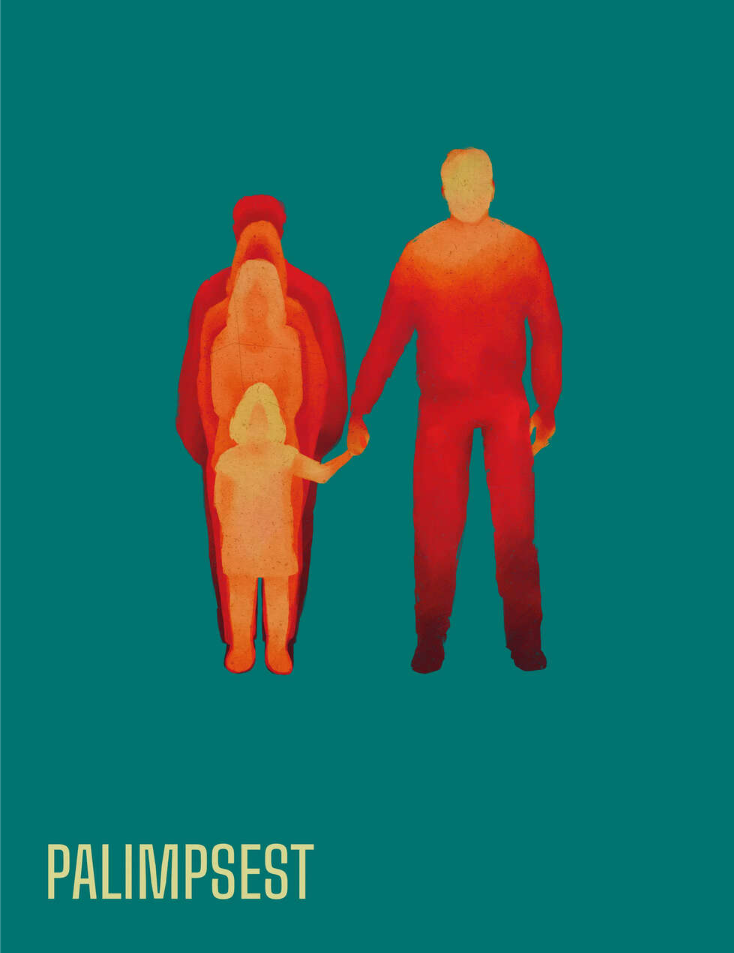
“Why don’t people learn from their mistakes?” An elderly woman speaks those words at the beginning of Palimpsest (2022), and it’s a question which shapes the film which follows as we unfold a gentle, sometimes whimsical and sometimes moving story all about the ‘What ifs?’ Back to the lady who opens proceedings: she’s busy pondering the modern world in all its vainglorious wonder, cataloguing some of the strangest quirks of the 2020s (and it seems that ‘naked dating shows’ are all the rage in Finland, too). But she’s talking to herself in what seems to be a high-dependency nursing home, and while the staff are busy in their work – too busy to pay her any mind – it seems that her nearest bed-mate isn’t listening to her either, on account of being stone dead.
Elsewhere in the ward, a man called Juhani (Antti Virmavirta) is visiting his wife, Matilda, and they’re discussing some new treatment. But it’s not for her; it’s for him, and she’s very keen that he goes through with what seems to be an experimental procedure, effects as-yet unknown. We then follow him as he begins down this path, his clear terror at what’s to come made clear by how blindly he progresses (or is progressed) through the preparations for this. However, soon enough he arrives at what seems to be quite a plush blend between an apartment and a ward – even if it’s shared with another new patient – and the programme of treatment, intended to undo the effects of ageing, begins.
He begins to get to known his roommate, Tellu (Riitta Havukainen), whose own reasons for undertaking this course are kept more guarded, but Tellu seems more straightforwardly up for the process. Some of the film’s warmest, and occasionally funny moments come from Tellu rediscovering the basic pleasures of a fully functioning body: the ability to overhear music without the use of hearing aids; suddenly having the headspace to care about TV shows which had passed her by. She gets her libido back, too, and we can really believe in her unabashed surprise and delight about this. For Juhani, things are more complex: he has a wife, a daughter, a grandson. His wife may have been all for the treatment, believing that this would keep him around for longer and in the lives of the younger family members, but it doesn’t change the fact that she is unwell, getting closer to death herself. Overall, Juhani’s enjoyment at the success of the treatment is modified by guilt and concern, something which doesn’t seem to trouble Tellu, who relishes the chance to overwrite the mistakes and griefs of her past. These two new friends begin to diverge, with different decisions over how best to use the time now re-gifted to them.
We have seen this kind of thing in cinema before, with different films dwelling differently on the miraculous means by which people can arrest the progress of their lifespans. Hard though it can be to remember that Palimpsest is, really speaking, a science fiction film, it’s as such not a million miles away from the likes of Cocoon (1985) (though the newer film keeps its plot-specific cards closer to its chest) and there’s some overlap with The Curious Case of Benjamin Button (2008). But, ultimately, the decision to participate in the de-ageing treatment is taken by the key characters themselves, rather than some happy or unhappy accident which befalls them. The film offers a tender and often wistful set of character studies, which gets where it’s going by staying light on the science and close to its two protagonists. There is a range of actors to bring each life stage of each person to the screen, and these are well-chosen, even if it can be a little difficult to believe – given the importance of believing in the characters’ initial frailty – that the eldest version of Juhani is all that frail, as Antti Virmavirta is a very healthy-looking man – though perhaps the point is more about his decreased mobility, which we are shown, and also his wife’s wishes.
Along the way, we start with quite a low-key and teasing look at the generation gap, from the lady at the beginning through to the calm but baffled assessments of new music, TV and technology via other characters – though, more gallingly, the tendency of younger people to almost completely overlook the elderly, not even making eye contact with them (and thinking it’s fine to wedge a male and a female into the same treatment room) lands a harder blow than some of the more quirky observations. It’s also interesting, and often sad and affecting, witnessing how the characters begin to re-learn about themselves and their relationship with a world which had been busily forgetting them. The topic of memory, particularly shared memory, is also very important to the film: would you keep your memories, or shed them, too? The term ‘palimpsest’ refers to a canvas or parchment which is overwritten and overwritten, and sticking with its title’s meaning, the film allows itself the luxury of being very detailed; perhaps it stretches towards being too detailed, a little too long overall (a forgivable minor sin from writer and director Hanna Marjo Västinsalo, with her first narrative feature-length here).
But for the most part, this film asks enough questions and provides enough resonant answers to justify the means. It’s a steady, thoughtful and philosophical story, able to lead the audience through an interesting and well-realised fictional world, and one which doesn’t often take the directions you might expect.
Palimpsest (2022) will receive its UK premiere at the Raindance Film Festival on Sunday 29th October. For more details, please click here.
